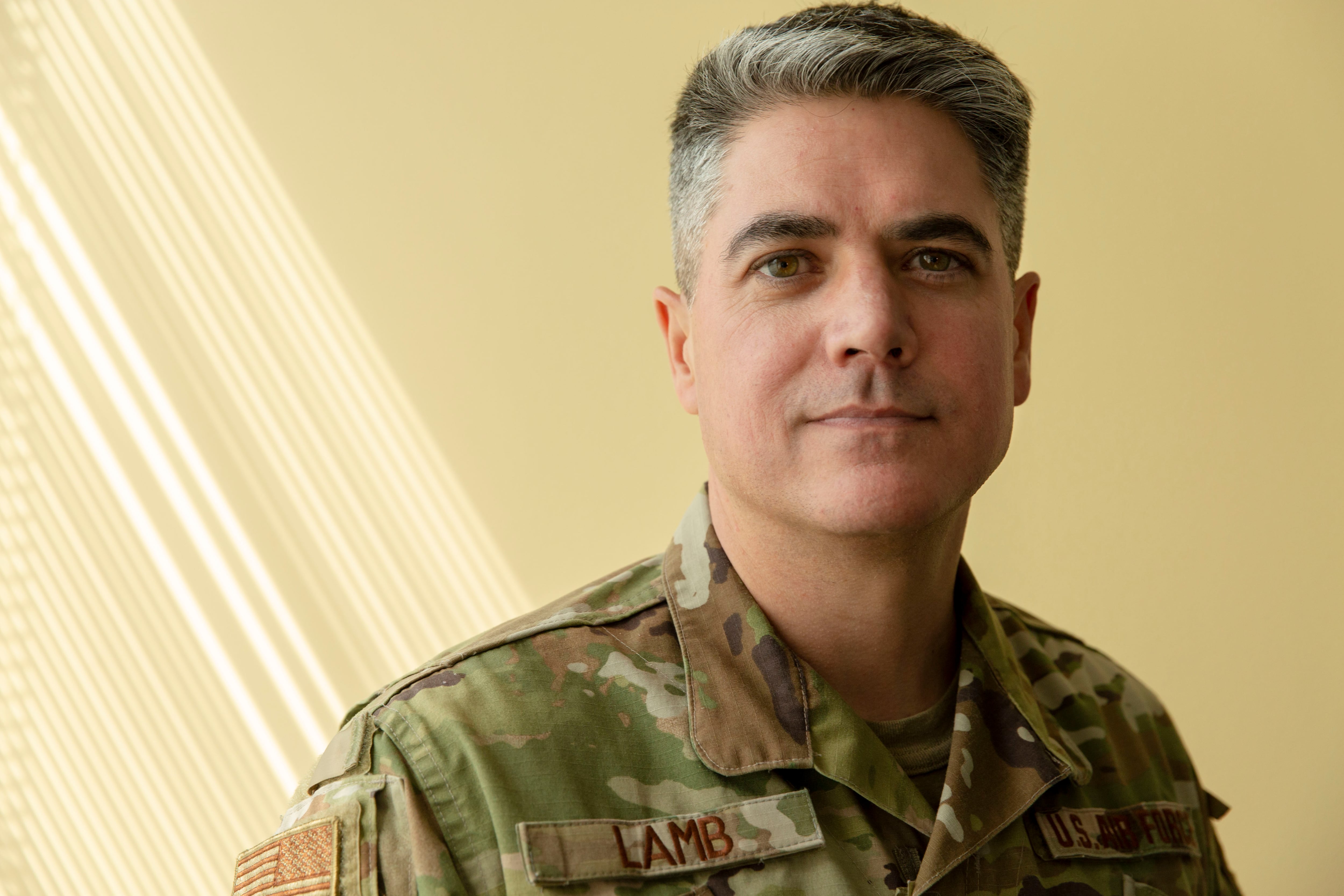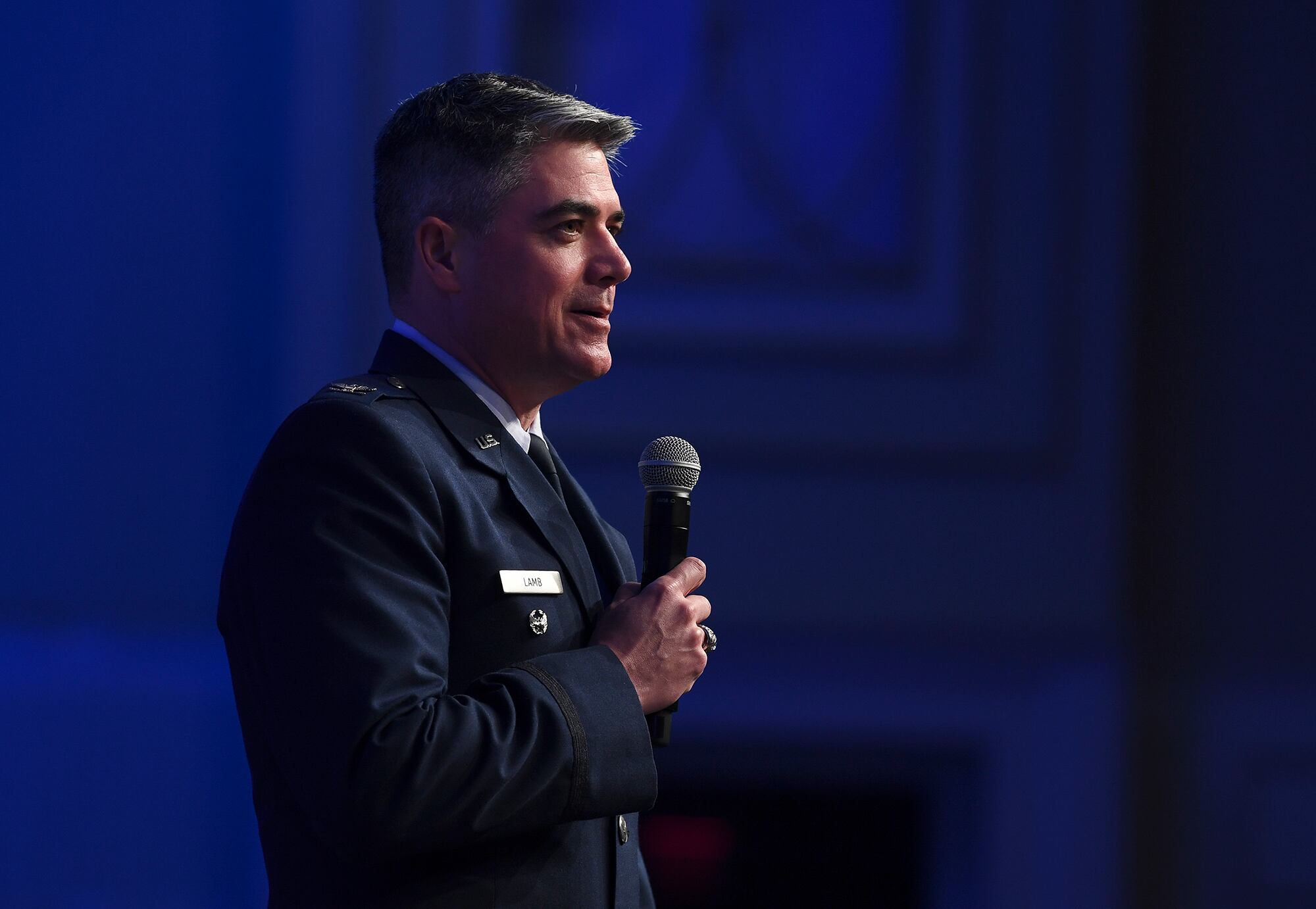Editor’s note: Col. Jason Lamb, AKA Col. “Ned Stark,” is a career intelligence officer who in 2018, began writing a series of provocative columns for Air Force Times and War on the Rocks about leadership development in the Air Force and where it had gone wrong. They went viral, sparking debate across the service, and even prompting Chief of Staff Gen. Dave Goldfein to offer him a job. Though Lamb ultimately decided not to join Goldfein’s team, he revealed his identity last year and consulted with Air Force leadership on personnel issues. He is retiring July 31, and now lives in Colorado Springs, Colorado. He hopes to join the Space Force as a civilian in the future.
My time in uniform is coming to an end. I’ve been fairly public about my retirement, and some fellow service members I respect have asked me to provide some thoughts and encouragement for those who are continuing to serve. And so, with a sense of gratitude and a light heart, I offer a few ideas for consideration before I officially hang up the uniform.
Each of us has, or will have, defining moments in our lives — not just important, but truly defining and life-altering experiences. I encountered my first such fork in the road as a second semester senior at the Air Force Academy. I was at the top of my game and the pinnacle of my fledgling career in the Air Force. I was a deputy group commander and it felt great; I reveled in my position and authority as the quintessential upholder of standards.
Things were going well until about halfway through that last semester, when my cadet group commander, Mike Miranda, decided we should do a 360-degree evaluation. I thought it was an interesting idea and had no problem sitting in judgment of my peers. I measured cadet worthiness in terms of compliance with standards, and coldly evaluated my fellow cadets accordingly. The results of my evaluation came back a week later — and it was brutal. In short, the evaluation said that I was self-righteous and authoritarian, with a tendency to rely on my position to compel compliance.
Ouch.
When confronted by such an assessment, a person basically has two choices: Reject it, or accept it and endeavor to do something about it. After reflecting for a couple of days, I decided the assessment was accurate and that I did not want to be the kind of person or leader it described. A few days after that decision, we had a staff meeting. I sat silently until the end when Mike went around the room and asked if any of us had anything to share with the group.
RELATED

I raised my hand, stood up, and with eyes cast down at the table, apologized to everyone in the room for my behavior up to that point and vowed to do better. Instead of ostracizing me, nearly every person in the room approached me privately to express support or to praise my courage for owning my mistakes. I began my journey to becoming a better person and leader that week. I occasionally lost my way, but I always found my way back on track. I still thank God that I learned that lesson as a cadet so I didn’t inflict that horrible “leadership” style on any airmen.
From this experience and many that followed, I hold the following three tenets to be true:
First: Leadership is about relationships, not conformity or compliance. Standards are crucial, but leadership is about relationships and using those relationships to help others reach their full potential. It’s easy to point out a mistake, but it’s much harder to uplift and encourage a person to do better.
As a major, I had to issue a multiple-page letter of reprimand to a well-intentioned but under-performing junior noncommissioned officer. I emphasized that his conduct was not meeting standards, and I knew he could do better. I let him know I had every confidence that he would succeed, but that further misconduct would result in additional action.

When we were done, he thanked me for the letter. He told me he had been disciplined before, but never had anyone expressed confidence in his abilities or encouraged him. His performance improved drastically and he went on to be selected for a commissioning program. Upholding standards and discipline are necessary, but it is not leadership.
Second: Achievements and material gains are fleeting, but a life lived in service to those who have volunteered to serve our country contributes to a life of meaning and contentment. As a junior officer I remember how much I coveted quarterly and annual awards. In my mind, those accolades really marked the officer who was going places and making a difference. While meaningful at the time, those certificates, plaques, and trophies no longer hold the appeal they once did.
What I really cherish are the letters, e-mails, and other messages I’ve gotten from the airmen I served — unsolicited expressions of gratitude for the part I played in their lives, sometimes years after the fact. Those notes stand in stark contrast (no pun intended) to the 360 assessment I received as a cadet. If not for that watershed moment in my last months at the academy, I may have made the mistake of prioritizing career achievement over the relationships with my airmen.
Ambition is good, but when it’s focused on rank and authority, it will never be enough; people thus motivated are rarely content, and are always chasing the next “thing.” Once they retire, few people remember ladder-climbers in favorable terms, but people will continue to talk with fondness about the leaders who made a positive difference in their lives.
Third and last: It’s difficult to overstate the importance of meaningful self-reflection. Pray, meditate, or just take a walk while you think about the choices you’ve made or need to make and the motivations behind them. Why people make the choices they do matters. For example, I could have accepted Chief of Staff Gen. Dave Goldfein’s generous offer to come work for him. There were allusions to potential promotion, not just to brigadier general but possibly more. It would have meant moving my family less than six months after arriving in San Antonio, but totally worth it, right?
As I reflected on the opportunity, I came to two realizations: first, while I might be able to do some good, accepting the position felt like selling out by compromising my message for personal advancement. Second, I was concerned that my motivations wouldn’t be entirely pure, and that if I let it, my ego would take me down a self-serving path. Who wouldn’t feel pride at achieving the coveted status of general officer? Those were some tough truths to accept, especially when so many were encouraging me to take the position. It would be easy to rationalize, but that in itself is an indicator of potential moral compromise. Looking back now, I know I made the right call, and I have no regrets.
So, after 29 years in uniform, what I leave you with is the importance of relationship-focused leadership, the enduring value of service to others, and the criticality of self-reflection. I hope some find this useful on their journey. Regardless, I wish my fellow service members nothing but the best. I thank you from the bottom of my heart for your dedication to supporting and defending our Constitution. For my part, I hope to continue to serve our great nation in some capacity. In the meantime, I will conclude my uniformed journey where it began — in the shadow of Pikes Peak.









